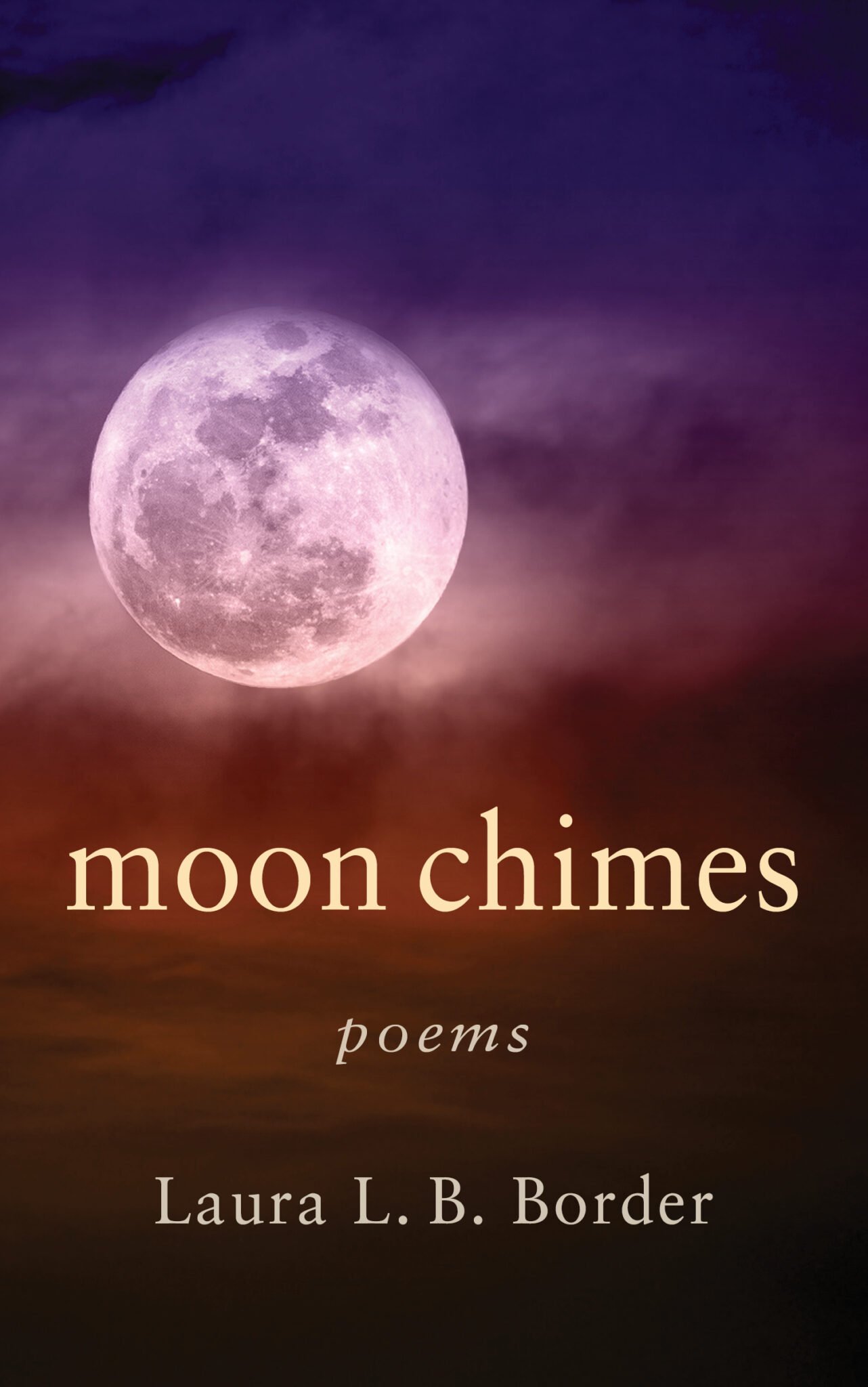Laura Border is serving her second term as vice president of BWA. Laura posts a blog on writing on the seventh day of each month called Laurelle Communications at lauraborder.com. Her recently published chapbook of poetry, Moon Chimes, is available in print and e-book format on Amazon.
When did you first decide writing would be your career or hobby – did you find writing, or did writing find you?
Writing has always been my solace and daily focus. The only class I remember well from high school was taught by an art teacher who had to step in when the English teacher left. He used art techniques to teach us to write. It was my favorite class and I still remember what we wrote about and what he read to us. Since my adolescence, I have filled pages and pages of journals. Writing poetry has always been an outlet for me. Writing provided my access to and success in my career as an academic. I’ve attended many conferences and workshops on writing because I love to learn from and interact with other writers. I started writing fiction 30 years ago but have yet to publish one of my novels. To publish one is my goal.
Do you remember the first book you read on your own?
I learned to read when I was four. To my mother’s dismay, I always had my nose in a book. The Bobbsey Twins (which is now considered racist and sexist), written by Laura Lee Hope, caught my attention. I loved the twins, especially Flossie and Freddy. Plus, I was enchanted to see a variation of my own name (Laura Lea) on the cover of a book.
What are you currently reading?
Each month I regularly read three books for my reading groups, and something I want to read just for myself. I’ve been in a feminist book club for 38 years, in another more eclectic book club for about 10 years, and in Gary Alan McBride’s Writers Who Read group for three years. I just finished reading Mozart’s Starling, The Rent Collector, and The Lying Life of Adults. I have also been reading Azar Nafisi’s That Other World about Nabokov’s fiction and The Ferrante Letters, a book of collective literary criticism. This month I’m reading The Liar’s Dictionary, The Water Dancer, and The Vanishing Half.
Do you prefer to write off the cuff, or do you take a more methodical approach, such as using an outline?
 It is difficult for me to see these two approaches as separate. Whatever I happen to be writing, I lay out a basic framework, but I allow myself space and time to expand and just let my writing flow. Writing is a growing process. What I have found writing novels is that the characters I put in place tend to grow and develop in ways that I could never have planned. My knowledge of learning styles and informational processing allows me to strengthen my strengths and shore up my weaknesses. My mind analyzes, reflects, and generates almost simultaneously. On the other hand, I must push myself to question. So I always question myself (who, what, when, where, why, how much, or how is this related to that?) when I go back over something I have written. My questioning helps me figure out what kinds of supportive research I need to pursue.
It is difficult for me to see these two approaches as separate. Whatever I happen to be writing, I lay out a basic framework, but I allow myself space and time to expand and just let my writing flow. Writing is a growing process. What I have found writing novels is that the characters I put in place tend to grow and develop in ways that I could never have planned. My knowledge of learning styles and informational processing allows me to strengthen my strengths and shore up my weaknesses. My mind analyzes, reflects, and generates almost simultaneously. On the other hand, I must push myself to question. So I always question myself (who, what, when, where, why, how much, or how is this related to that?) when I go back over something I have written. My questioning helps me figure out what kinds of supportive research I need to pursue.
What is the best advice you’ve received?
My doctoral dissertation advisor told me, “Don’t get it right, get it WRITTEN!”
What are some of your favorite resources for writers?
My favorite resource for understanding and improving my writing is Lewis Turco’s The New Book of Forms: A Handbook of Poetics. I go back to it time and time again, using it to focus on and practice what I need to work on in prose and poetry.

